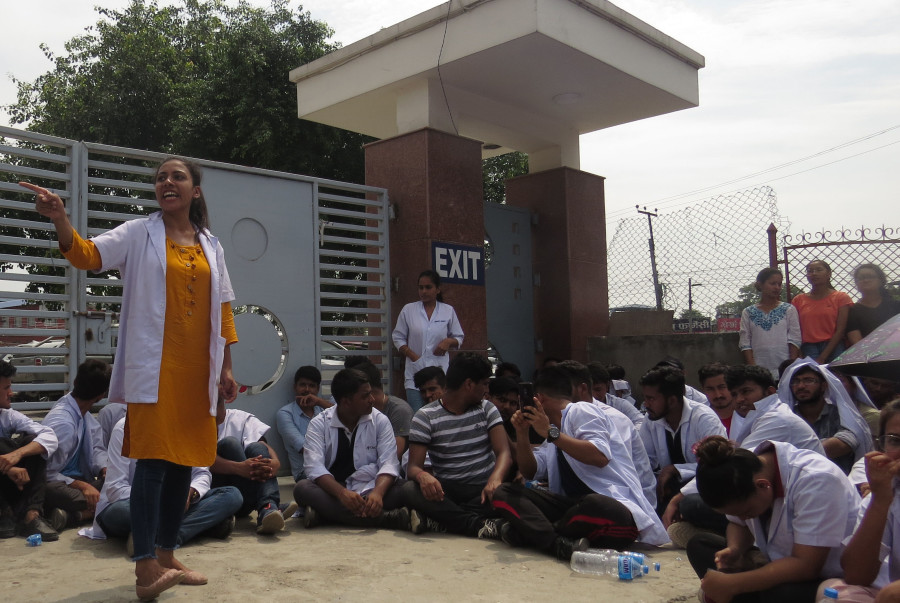Editorial
Medical education in peril, again
The protesting students’ demands to implement the new laws are legitimate and valid.
Nepal’s medical education sector has been failing. Having been mired in one controversy after another for years, it was hoped that the many hunger strikes led by Dr Govinda KC would lead to some concrete change in the system. Parliament has passed legislation incorporating many provisions stemming from the recommendations made by the Kedar Bhakta Mathema-led Medical Education Commission, but these clauses have not been implemented.
No date has been fixed when the provisions in the new act will be implemented, and the newly formed Medical Education Commission, the regulatory body, is still devoid of members. It is no wonder then that students have been agitating over the plan of universities to push through with the entrance examinations. The government has a responsibility to fulfil the regulations set out in the National Medical Education Act. After all, the provisions in the Act are the bare minimum to improve the ailing and corrupt sector. Further, no new intake of students can occur until the Act is implemented fully. Not doing so will just allow the rot in medical education to affect the sector for many more years to come.
The problems in the medical education sector are not new. For years, colleges were opened by businesspersons with the primary objective being profit maximisation. While profit-making is not inherently bad, to have that aim trump more vital ones—like serving patients and producing the best students—in such a crucial sector is obviously wrong. The result was the opening of a string of sub-par colleges, primarily surrounding population centres. The problem here was twofold. On the one hand, students were charged exorbitant fees while receiving a sub-par education. This meant that the quality of the healthcare sector itself would degrade over time. On the other hand, with the institutions being centred mostly around the Kathmandu Valley, the opportunity to make healthcare more equal across the country was lost. It took Dr KC's risking his life five times for the then-government to even set up an independent committee to look into improvements. It took another 10 hunger strikes by the good doctor, and numerous protests and strikes by doctors and the general public alike, for lawmakers to even consider implementing some of the Mathema Commission’s recommendations (submitted in 2015) into the Medical Education Act (passed in 2019).
Now that the Act is finally in place, albeit still lacking some of the recommendations, the medical colleges in tandem with the government are still hell-bent on ignoring its provisions. But what can be expected from a regime where the parliamentary Committee on Education and Health has education business owners as its members? At such a significant time for the sector, the parliamentary sub-committee had the gall to blame parents and students for paying the exorbitant fees in the first place. The current demands of the protesting students, pressurising the government to first implement a standardised entrance test for all universities and to provide scholarship seats as provisioned in the new act, are legitimate and valid.
***
What do you think?
Dear reader, we’d like to hear from you. We regularly publish letters to the editor on contemporary issues or direct responses to something the Post has recently published. Please send your letters to [email protected] with "Letter to the Editor" in the subject line. Please include your name, location, and a contact address so one of our editors can reach out to you.




 9.89°C Kathmandu
9.89°C Kathmandu














